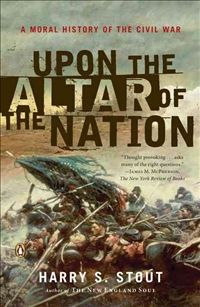Don't get me wrong - I strongly in favour of action to prevent the proliferation of nuclear weapons. I have often, however, reflected on the hypocrisy of those states with nuclear weapons acting occasionally, vigorously, to restrict their spread.
"You can trust us" is the implication, we are not crazy like those other states for whom possession of these weapons might prove a risk. "You can't let states that might have crazy leaders get hold of them". "We are rational democratic states, we don't get crazy people in charge, who might start waving them around".
Leaving aside that the logic of deterrence involves creating the impression that you might be crazy enough to actually use nuclear weapons, their is another critical assumption in the rationale that rarely gets unpacked. Lee Griffith in The War against Terrorism and the Terror of God (Eerdmans, 2002) nails it nicely.
"You can trust us" is the implication, we are not crazy like those other states for whom possession of these weapons might prove a risk. "You can't let states that might have crazy leaders get hold of them". "We are rational democratic states, we don't get crazy people in charge, who might start waving them around".
Leaving aside that the logic of deterrence involves creating the impression that you might be crazy enough to actually use nuclear weapons, their is another critical assumption in the rationale that rarely gets unpacked. Lee Griffith in The War against Terrorism and the Terror of God (Eerdmans, 2002) nails it nicely.
There are no Reichs to last a thousand years, no empires on which the sun will never set. Like the Soviet Union, like Rome, like Babylon, the United States will surely pass away. Like treasures, nations are consumed by moth and rust (Matthew 6: 19). The life span of nations is much shorter than the half life of most nuclear materials. A failure to acknowledge that the weapons we disperse, and the weapons we possess, will someday be possessed by other hands is simply hubris. (p.82)

